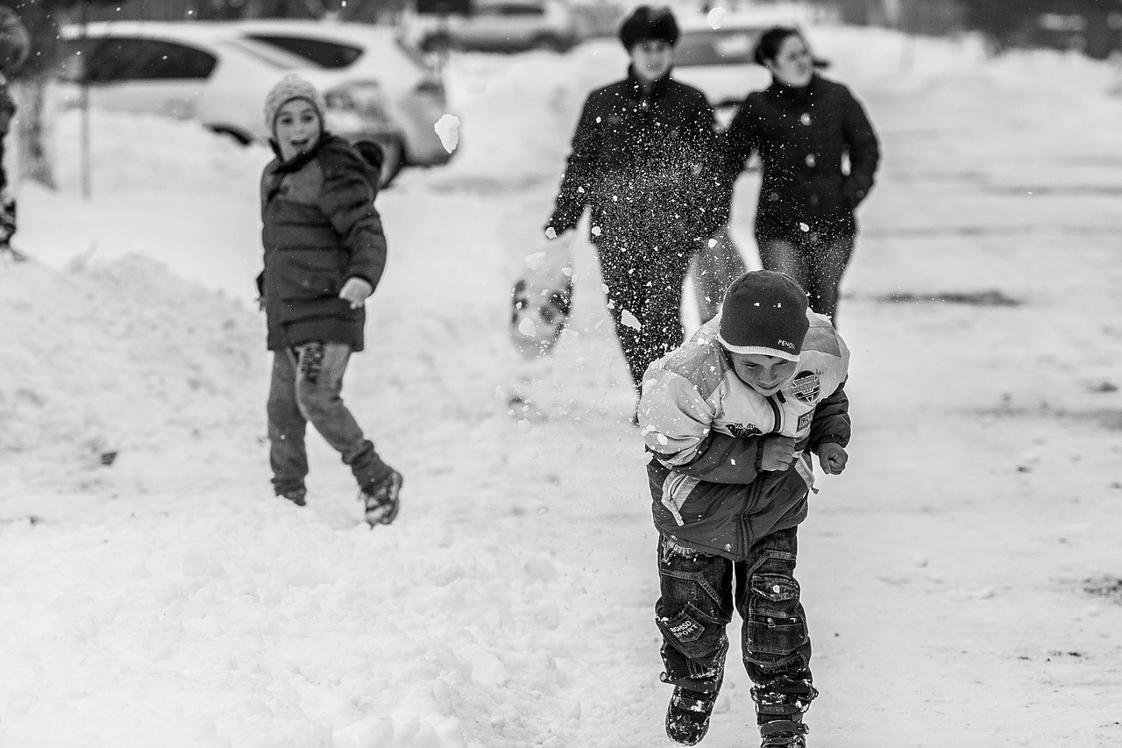- You have no items in your shopping cart
- Continue Shopping

Frustrations from others can ruin our day — from getting angry at other drivers when they rudely cut you off, to being frustrated with your child or spouse, to being irritated with co- workers, to being offended by a stranger or waiter or rude flight attendant.
You can’t control people. You can only control your reactions to them.
The frustration, anger, irritation and being offended — these don’t help us. They lead to us acting in a way that’s destructive of our relationships with others, in a way that isn’t compassionate, calm, understanding. They lead to us not being trusted by others, making others angry, making others not like us. And just as bad, they lead to us feeling bad, which doesn’t make for a good day.
If these feelings aren’t useful, what should we do? We can’t just flip a switch and turn them off, nor can we suppress them (we can try, but it doesn’t work).
Start with awareness — to change our reactions, we must first be aware when these reactions happen. You can’t change them if you’re in automatic mode.
Once you notice it, the key thing is not to act — it’s OK to have the feeling, but the action is what is usually destructive. Acting in anger means you’re going to do something not kind, not helpful.
So give yourself some space. Walk away, calm down, breathe. The space is where you can watch the emotion rise, peak, fade away. Then you can think about it calmly and act in an appropriate manner. That’s what we really want: an appropriate response.
What’s an appropriate response? If you take away the anger, the feeling offended, you can respond in a way that makes sense for the situation. For example:
- If someone cuts you off, slow down and give them some space. Maneuver around them if you like, when it’s safe. Don’t do anything aggressive, and don’t let yourself get too worked up.
- If your kid misbehaves, instead of yelling, you can try to understand why, and talk to them about it in a compassionate way, and model good behavior.
- If a co-worker is irritating, you can talk to him calmly, in a collaborative way, instead of a me-vs.-you way.
We Are All Learning
This is a slogan I use to help me put things in perspective: “We are all learning.” You can tell it to yourself whenever someone does something you don’t like.
What does it mean? If someone is rude, it just means he has a lot to learn about being considerate or managing his anger. If my co-worker screws up, she has some things to learn about the work. If my child screws up or acts badly, she also has a lot to learn about life.
And that’s OK. We all have things to learn. We are all in the process of learning, all the time. We’re at different stages with different skills, but none of us has learned everything. And if we realize this, we can then be patient with this fellow learner, who after all, can’t be expected to know everything and be perfect, right?
We can use this with ourselves as well — when we mess up or react badly, we can forgive ourselves by saying, “We are all learning.” We are just as imperfect as everyone else.
When someone does something less than perfectly, rudely, inconsiderately, inappropriately — just tell yourself, “We are all learning.” And then smile.
The Other Person Isn’t the Problem
This one is more of a ninja-level skill, so don’t worry if you don’t incorporate this right away.
Here’s the thing to ponder: The other person is never the problem.
What does that mean? If someone behaves rudely and you get angry with him, the problem isn’t the other person’s actions … it’s your reaction. Or more accurately, it’s not even your reaction, but your action based on that reaction.
This point of view contends that other people’s actions are just an outside stimulus, just like a leaf falling outside, or a rock falling in front of us on a mountain path. When a rock falls in front of us, we don’t get mad at the rock. We go around it.
When a leaf falls, we don’t think it’s being rude to us. We just watch it, and think of it as a natural phenomena.
Other people’s actions are really no different. Consider this story, from the Zen tradition:
A man is rowing a boat and sees another person rowing a boat toward him. The boat bumps into his, and he start yelling at the other man, mad that the man bumped into his boat.
Then consider this alternative version:
The same man is rowing a boat and sees an empty boat coming towards him. The boat bumps into his, but he simply steers his boat around it.
In the first version, he gets mad. In the second, he reacts appropriately.
Here’s the thing: the boat is always empty. Even when there’s another person causing the stimulus, that person isn’t trying to do anything to us. They are doing their own thing, motivated by whatever they’re going through, and so we shouldn’t take it so personally.
When we take things personally, we get angry. When we see the external event as an empty rowboat, we react appropriately.
And so, the other person isn’t the problem. It’s us taking things personally. This takes time to learn, in your gut instead of just as an idea, but it makes a ton of difference.
Action step:
Write down three phrases to say to yourself whenever you have a bad reaction to the actions of others: “Give your reaction some space. We are all learning. The other person isn’t the problem.” Have these phrases in a place you can see them the next time you might react to someone, and start saying them (silently) to yourself when you notice your reaction to their actions.
By Leo Babauta




